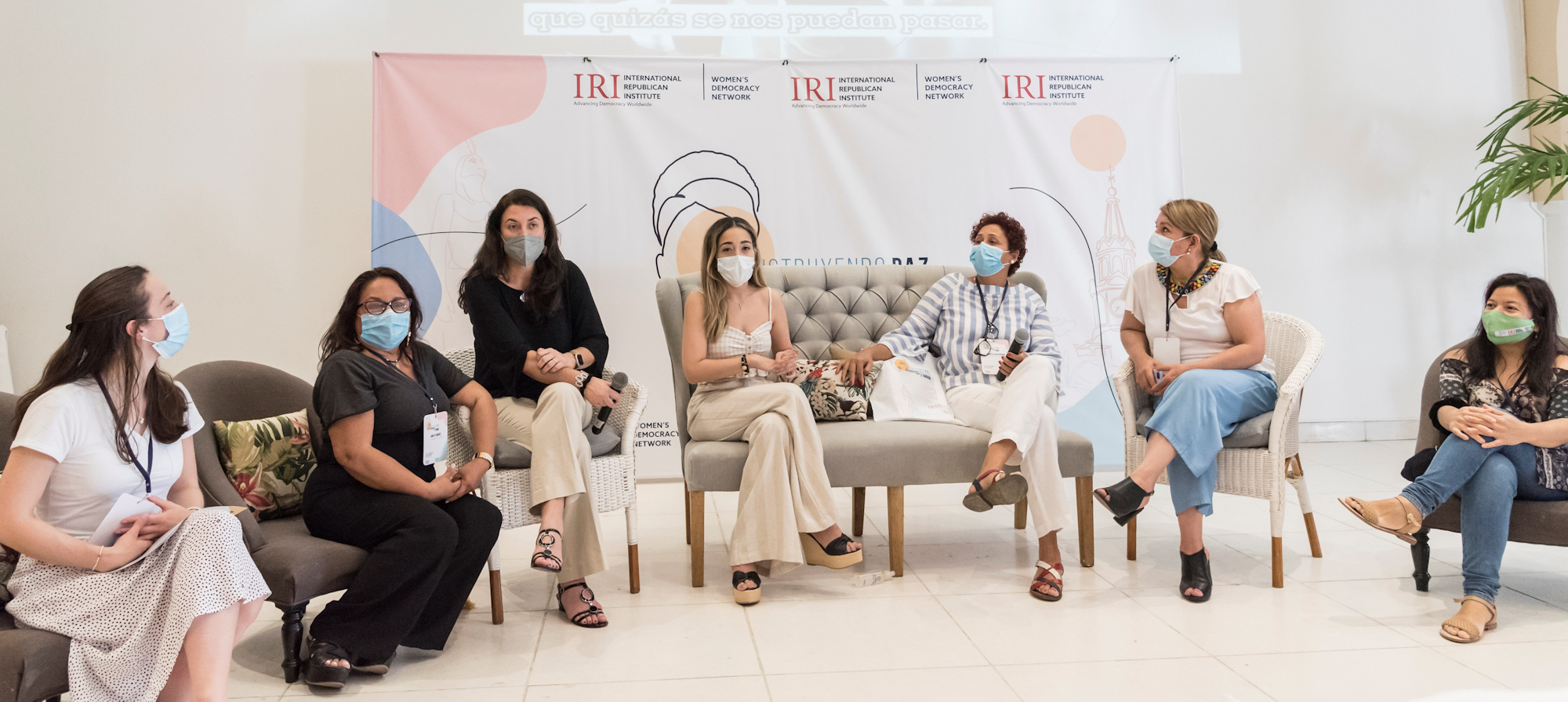Colombian Youth and Women Leaders Advocate for Peace and Security Through Multi-Stakeholder Dialogue Conference

Women’s participation in political processes at the subnational and national levels of government is imperative to a thriving democracy. . The 1995 Beijing Declaration and Platform for Action established the foundation for equal political participation and power-sharing between women and men in decision-making, which set an international target for gender equality in politics. Since the 1995 Declaration, many countries have set quota systems to achieve these targets.
In Latin America, women hold more than 30% of parliamentary seats as a result of these gender quotas. The region has been a global leader in women holding top-level positions, including as heads of state. While the region has made strides to include women in politics, the most common positions held by women focus on gender equality, family, and environmental affairs. Women are often excluded from political conversations surrounding peace and security efforts, despite being affected by security threats and war.
Though there are quotas mandating women’s representation in Colombia, only 20% of congressional seats are held by women. Increasing women’s political inclusion in Colombia will reduce violence and create more effective peace and security policies, as treaties are 64% less likely to fail when civil society and women’s organizations are included. Furthermore, the risk of conflict restarting is almost eliminated when women make up at least 35% of a country’s congressional body.
To advance women’s participation in politics on peace and security measures, the International Republican Institute’s (IRI) Women’s Democracy Network (WDN) worked with Colombian civic leaders and government officials from six municipalities in Montes de Maria to bring them together to discuss relevant issues and allow leaders to advocate for their needs.
To maximize the program’s impact, IRI gathered women from Montes de Maria, Colombia, an area highly impacted by Colombia’s 50-year civil war. The conference, held in Cartagena, served as a platform to discuss how to advance women’s rights and guarantee their participation in the post-conflict political processes. Women leaders were able to discuss recommendations on how government officials can better meet the needs of women and girls in their respective communities. The women encouraged the government to address drug trafficking, while youth leaders strongly supported women’s rights, specifically two female youth leaders collaborated with local government officials in El Carmen de Bolivar to create a campaign against violence against women. Women’s engagement in political processes pertaining to peace and security efforts are critical to stronger democratic societies. Providing women more platforms and opportunities to engage in these initiatives will only enhance peacebuilding and encourage more gender-responsive policies that respond to the needs of citizens. This is why IRI seeks to promote women’s voices and political inclusion through WDN programming.
Top